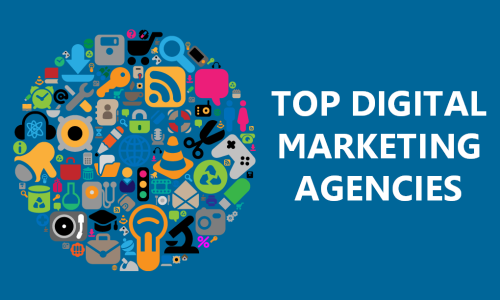
According to Smart Insights, social media marketing was the most effective technique in 2018, followed by content marketing and data management, with SEO falling somewhere in the centre. While this is far from conclusive (some strategies will perform better than others based on a variety of factors), it does provide an intriguing insight into the most likely lead generation approaches. Email and video are consistently effective ways to promote almost any product in almost any business, but they aren’t as powerful as content or social media marketing, according to the Smart Insights chart. What counts more than the type of marketing you conduct is whether your overall strategy is well-suited to your brand and message. To that end, here are some things to think about when building an effective campaign for your company.
Maintain your agility.
The issue with internet marketing is that it has a bit of a learning curve. So, while making a strategy is essential, you must also be flexible with it.
- SEO trends are changing.
- Future trends
- Your editorial calendar and timetable
- Only one or two social media platforms (the ones that perform the best)
- Which KPIs should be prioritised?
- When should you expect progress reports, and when should you discuss and regroup?
An effective plan will always require some tinkering, and as a result, it will need to be carefully monitored and adjusted on a regular basis. If you’re working alone or in a small business, don’t be hesitant to employ outside advisors to assist you in digging into your metrics and rethinking goals if something isn’t going as expected.
Know your customers inside and out.
Without a comprehensive understanding of who buys your product and why they buy it, no digital marketing plan will be effective. It may or may not matter where and how they purchase it. Investigate diverse demographics to learn not only what they want to buy, but also what they’re concerned about on a cultural, social, and political level.
Airbnb’s success with # weaccept, a Super Bowl ad that aired in response to President Trump’s travel restrictions, is an example of customer awareness. It earned 5 million views on YouTube in a month, and the well-liked hashtag attracted a lot of celebrity attention. That’s not to say you should go full-on political, but being culturally aware, especially when on-brand, is never a bad thing.
Mercedes’ # MBPhotoPass campaign is just one of many that used technology, authenticity, and a simple message with an influencer collaboration to attract the attention of animal and adventure enthusiasts. The campaign included this video. It has a 360-degree VR image of Loki, a canine Instagram star, and his owner, Kelly Lund, driving a Mercedes through the icy Alps. The campaign became viral because it showcased a variety of actual people enjoying real adventures.

Concentrate on the end result.
In marketing and product development, the product and the “statistics” surrounding it (earnings) are frequently overemphasised, and people lose sight of the need that the product fills. What matters most is who you’re marketing to and why you’re selling to them. To comprehend what they’re eventually accomplishing with your product, you need to understand their pain spots. To put it another way, if you show them the post-purchase moments, they’ll recall why they needed it in the first place.
Related: https://developers.google.com/search/docs/beginner/seo-starter-guide
Make Use of Content to Generate Leads
There are a variety of ways to generate leads, but one tried and true strategy is to provide excellent written content and distribute it effectively. You increase your conversion potential by linking your blogs and articles to a specific offer via a landing page. According to Entrepreneur, bloggers are 13 times more likely than businesses to have a favourable return on investment.

Use audio and go live.
When you organise and host in-person events, such as live webinars, that may be disseminated to valuable contacts afterwards or used as a special offer, you develop authority and connectivity in the field. The best part is that these gatherings do not need to be formal. You can organise a meetup night if you know a few peers in your field are in the same city as you.
According to Statistica, by 2020, 4.78 billion people will be using mobile phones around the world. According to Convince & Convert, 40% of shoppers utilise at least one social or search channel when shopping, and 4 out of 5 shoppers use their smartphones as part of their daily routine.
When you consider it, this is rapidly becoming the norm. You use mobile a lot for basic consumer requirements, whether it’s searching for reviews for a popular video game, checking restaurant ratings on Yelp, or simply seeing if your local store has the proper item in stock.
With that in mind, consider the following tips to keep your mobile marketing campaign on track:
- Make your website mobile-friendly on both PCs and smartphones.
- Make phone numbers, addresses, and CTAs clickable (calls to action).
- Make sure your contact information is linked to a mapping app.
- Ensure that your website loads swiftly.
- Always double-check advertisements for social media or other mobile-friendly channels.
- Make Use of Content to Demonstrate Authority and Authenticity.
- Don’t just use social media to “post”—no matter what channel or method you employ, you want to promote your company’s values and mission.
Here are a few pointers:
- With live videos, you can get up close and personal. When possible, include interactive components and behind-the-scenes glimpses of the company or product.
- As part of your company’s goal, provide ongoing learning and education, whether it’s about the business itself or a subject that’s important to you.
- Use audio and written interviews to create conversational content and make sure you have SEO-optimized, authoritative content on the web.
- Put your live and other videos on your website, and even use them in advertisements. Video is one of the most effective converters, and it doesn’t demand a large budget.
- Don’t forget about the emotional tales. It can be good to tell stories that appeal to the genuine people behind your organisation. They make your organisation appear more approachable and personable, which helps to develop trust. Consumers are searching for deeper significance in their purchases. Give them a compelling reason to stick with you.




